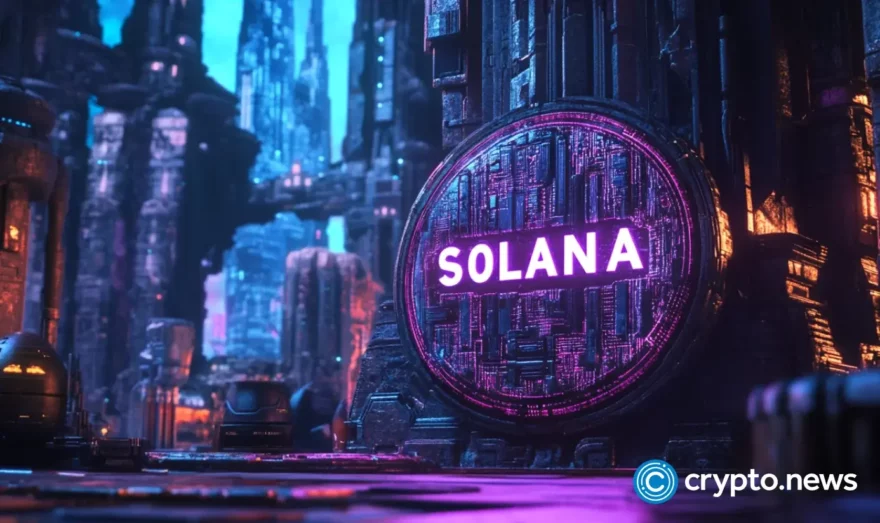Ethereum Co-Creator Believes Non-Financial Applications of Blockchain Preside over Financial Fervor

Ethereum co-founder Vitalik Buterin lanced a “tweet storm” on December 10, 2018, and briefly noted the non-financial applications of blockchain technology, such as academic degree verification and determining the “integrity of processes.”
Alternative Use Cases
The extended bear market in 2018 has given cryptocurrency critics and believers alike a chance to assess the far-reaching implications of digital tokens and blockchain technology. While the former continues to draw blank responses in terms of use-cases, the latter is enjoying steady adoption and looks poised to disrupt a large part of the technology sector in the years to come, alongside artificial intelligence, data sciences, machine learning, and robotics.
Starting with the increase in the economic functions of blockchain as the technology develops, Buterin believes a mixture of scalability, user interface, and low fees would help augment all processes and applications linked to the rising disruption. Blockchains can greatly help in basic investigations of what datasets were published on a given block and what wasn’t, giving rise to a sustainable and accountable economy.
2. One underappreciated way to view blockchains is as an extension of cryptography that does different things. Cryptography allows you to encrypt data, prove data was signed by someone, etc etc…. blockchains OTOH allow you to prove that a piece of data was *not* published.
— vitalik.eth (@VitalikButerin) December 10, 2018
The 24-year-old used the issuance of university degrees as a possible use case for a successfully deployed blockchain project:
3. A simple example is a blockchain university degree verification app I saw recently. A degree is certified with just a digital signature, but *revocations* are put on chain. With cryptography alone you can't check that a revocation was *not* signed; but with a blockchain….
— vitalik.eth (@VitalikButerin) December 10, 2018
4. To check that a degree was not yet revoked, you simply scan the chain and check all of the logs of the revocation contract. If a given degree was signed, and the revocation is not found on chain, then that means it's still valid.
— vitalik.eth (@VitalikButerin) December 10, 2018
Next, Buterin noted blockchains can find significance in the process of auctioning, which forms a global trillion dollar market and extends from seized goods, artwork, telecommunication, and government tenders, to energy contracts. Using a distributed ledger means verification of the process’ integrity is a publically-viewable feature and can unmask late bids, failed bids, and absent bids in the auction process.
6. Another category of use cases is verifying integrity of processes. For example, in an auction, you might want to verify that everyone's bid that was submitted on time was included, and no late bids were included. If bids are published to chain, even encrypted, you can do this.
— vitalik.eth (@VitalikButerin) December 10, 2018
Other categories of potential use cases include bringing different applications on a single distributed ledger. Buterin believes the process could prove to be more convenient as “credibly neutral” platforms can form a system wherein all participants trust the published data more than other sources. He further pointed out that public blockchains are more credible in this regard due to their inherently neutral status:
7. There are also many categories of use cases where different applications need to be on a common database, and it's just more convenient (or less risk of capture) if it's a credibly neutral platform. Supply chain tracing stuff theoretically falls here.
— vitalik.eth (@VitalikButerin) December 10, 2018
Save Social Costs at a Sacrifice
The developer’s latter part of the tweet storm spoke about potential “blockchains of the future” that are a thousand times more efficient than currently-used systems such as sharding and proof-of-work will gain precedence. Buterin called out critics that compare blockchain costs to centralized servers, stating the former is strictly not about cutting computation costs but are a “sacrifice” for decreasing “social costs.”
While not explained in his tweets, the term attends to an economic concept that states individuals typically analyze daily costs relative to themselves, but fail to include the cost to externalities such as the environment. For example, a person driving to work gauges his daily expenses by fuel costs while failing to include the societal costs of increased traffic congestion, road maintenance, and other factors.
As one of his final tweets, Buterin shed light on the concept of true ownership if blockchains became the norm:
13. Another interesting thing that blockchains give is the value of permanence. For example, an ERC721 collectible that you hold in your ethereum wallet is "yours" in a very real cryptographic sense that would not be the case if it was just stored in a centralized server.
— vitalik.eth (@VitalikButerin) December 10, 2018
Concluding his brief narrative, Buterin noted institutional investors and engineers must deploy non-financial applications of blockchain technology as there is relatively less risk at stake compared to use in the finance industry.















